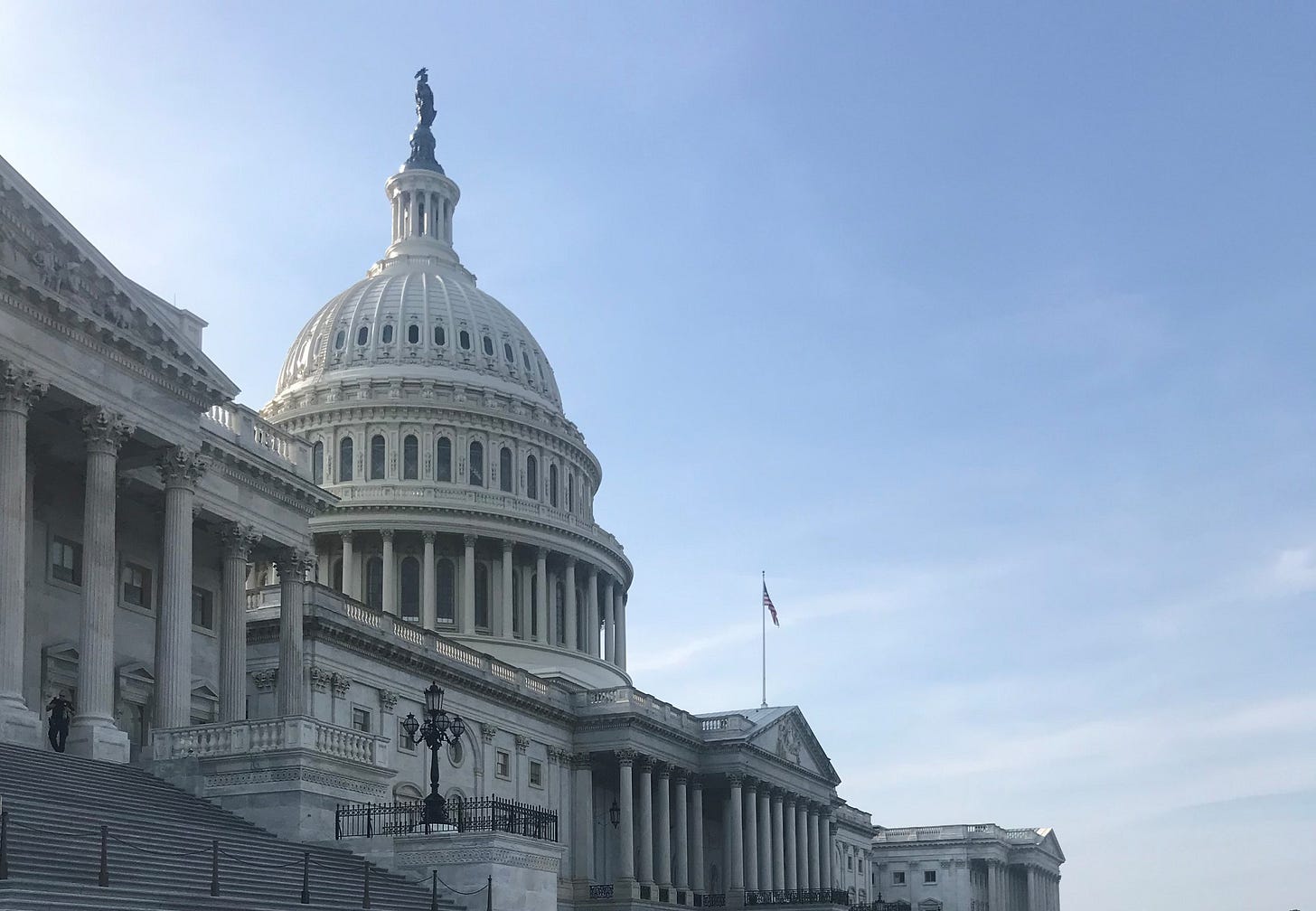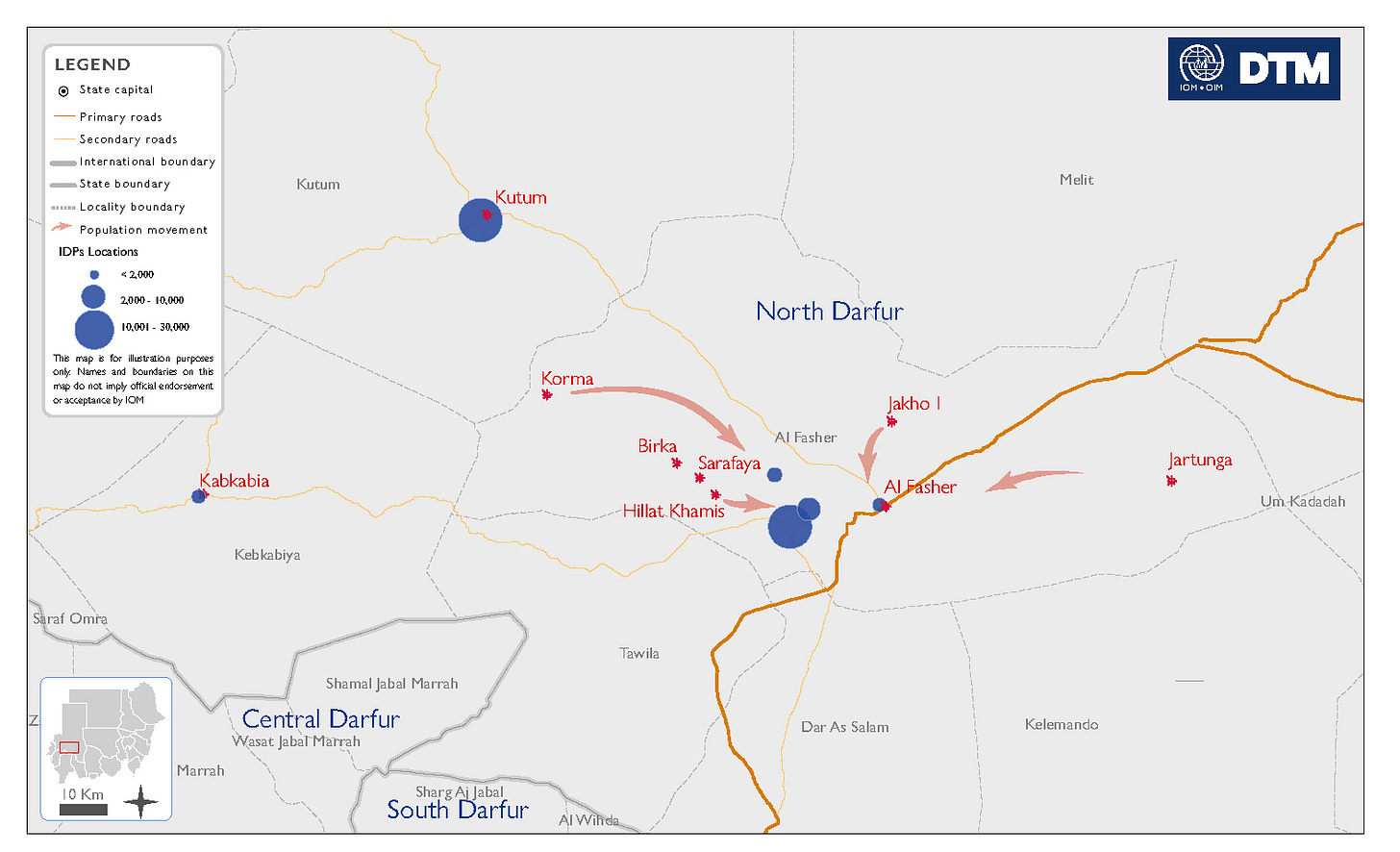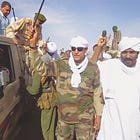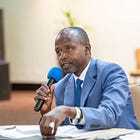U.S. Congress increases foreign aid budget
Lawmakers reverse budget cut that affected Sudan famine aid
The U.S. Congress has passed a supplemental budget that includes $9 billion for global humanitarian aid, averting a major cut to the U.S. humanitarian budget during a time of growing global crises, including the world’s largest in Sudan.
The $9 billion is divided between $5.6 billion for the U.S. Agency for International Development (USAID) and $3.5 billion for the State Department’s Bureau of Population, Refugees, and Migration.
“Part of this humanitarian aid will go to help the people of Sudan,” said U.S. Senator Ben Cardin, chair of the U.S. Senate Foreign Relations Committee, in a speech on the Senate floor last week. “Our values demand that we don’t stand by when people are starving. We have the capacity (to help) and we certainly need to act.”
White House, State Department, and USAID officials will determine how much exactly goes to Sudan and how much to other humanitarian crises around the world.
Without this funding, USAID’s funding for global humanitarian response would have dropped by approximately 35% compared to the last fiscal year, according to Congressional testimony by the agency’s administrator, Samantha Power.
The budget cut meant that the United States, historically the largest contributor to humanitarian programs in Sudan, had not pledged as much so far this year. As of the Paris pledging conference last week, the U.S. had pledged $147 million (€137m) for relief aid in Sudan, far less than the $600 million (€640m) given last year.
For comparison, the European Union and its members states have pledged nearly $965 million (€900m) this year, according to the French Ministry of Foreign Affairs.
At a hearing in Congress on April 10, USAID Administrator Samantha Power warned that the U.S. wouldn’t be able to provide adequate funding to the World Food Programme, UNICEF, and other aid organizations in Sudan. “To lose the supplemental (budget) means falling off a cliff,” she said in response to a question about Sudan.
U.S. charities last year criticized the cut to the foreign aid budget, saying the decision represented “a distressing abdication of the United States’ role as a global leader.” Less than 1% of the U.S. federal budget goes to foreign humanitarian assistance.
In the end, Congressional leaders changed their minds about the budget cut. The U.S. House of Representatives passed the new humanitarian funding last Saturday by a vote of 311-112, and the Senate approved it Tuesday by a vote of 79-18. President Joe Biden signed the measure into law the following day.
The funding was part a larger and more controversial budget bill, referred to as H.R. 815, the National Security Supplemental. By far the largest part of this budget was military assistance for Ukraine ($61 billion) and Israel ($26 billion). Those massive allocations stoked opposition within both U.S. political parties, leading to a months-long delay that held up the humanitarian budget too, before lawmakers struck a deal.
In a statement, USAID Administrator Samantha Power celebrated the new funding for her agency, saying, “This legislation will provide the resources we need to respond to a number of historic crises around the world, and in doing so, support our own national security by helping to keep these crises from spiraling further.” She added,
“These additional resources allow USAID to continue to maintain life-saving assistance for people in need in Gaza, Ukraine, Sudan, Haiti, Afghanistan, and beyond. The number of people requiring humanitarian assistance continues to increase, reaching nearly 300 million this year—an increase of more than 25 million people since 2022. USAID will continue to provide critical food and nutrition assistance in places like Gaza and Sudan, where famine looms, as well as life-saving medicines, water, protection, temporary shelter, and more.”
Similarly, U.S. Special Envoy for Sudan Tom Perriello said,
“Thanks to the U.S. Congress for passing the bipartisan aid package which will allow the U.S. to provide life-saving assistance for the people of Sudan. This conflict continues to be the world’s largest internal displacement crisis and, with millions of Sudanese facing malnourishment and even famine, additional humanitarian aid could not be more urgently needed.”
USA statement about Darfur fighting
In another development, the U.S. foreign ministry, known as the State Department, called for calm in the area around El Fasher. It released this statement:
“The United States calls on all armed forces in Sudan to immediately cease attacks in El Fasher, North Darfur. We are alarmed by indications of an imminent offensive by the Rapid Support Forces and its affiliated militias. An offensive against El Fasher city would subject civilians to extreme danger, including the hundreds of thousands of displaced persons who have taken refuge there. The United States is deeply troubled by credible reports that the RSF and its affiliated militias have razed multiple villages west of El Fasher. We also condemn reported indiscriminate aerial bombardments in the region by the Sudanese Armed Forces (SAF) and their continued limitations on life-saving humanitarian aid access.”
“The leaders of the SAF and RSF and their affiliated militias face a choice – escalate the violence and perpetuate the suffering of their people while risking the disintegration of their country, or cease attacks, allow unhindered humanitarian access, and prepare in good faith for negotiations to end this war and restore power to the people of Sudan.”
Meanwhile, our sources point to an additional risk of fighting around Melit, located 60 km north of El Fasher. Although the RSF took control of the town in mid-April, expelling the Juba Signatory factions, the latter remain present in rural areas round Melit and are “besieging” the city, according to RSF sources.
Ali Yagoub, the RSF Sector Commander in Central Darfur, who oversaw that assault on Zalingei last year, has relocated to Melit to oversee the RSF operation to defend the newly captured city.
Meanwhile, the International Organization for Migration estimated that 40,000 people (approximately 8,000 households) were displaced by conflict on the outskirts of El Fasher earlier this month, mostly in villages west of the city.
Recent Videos
RSF forces in North Darfur, bragging about their intention to attack El Fasher:
One of the villages burned during the recent fighting near El Fasher:
SAF troops in Mohandiseen, Omdurman, near the Hamed al-Nil Cemetery:
News in Brief
Médecins Sans Frontières opened a 25-bed field hospital Zamzam camp, North Darfur, April 23, and began treating malnourished children, measles cases, etc.
Ombada Emergency Room, a volunteer initiative in the Omdurman suburb, announced the closure of 25 collective kitchens due to a lack of funding.
Sudanese environmental activists said that a large number of livestock and birds died as a result of water contamination by mining waste at the Maridan mine, 30 km southeast of Talodi, South Kordofan, acording to Raido Dabanga.
At least five people were killed in Jazira State and four were killed in North Darfur in separate robbery incidents, while others were wounded.
Earlier this week, Jon Anton Johnson, the Norwegian Special Envoy for Sudan and South Sudan, held discussions with Egypt’s Deputy Foreign Minister Hamdi Loz in Cairo. Egyptian daily Al-Ahram reported that the deputy minister “stressed the need to preserve the sovereignty and territorial integrity of Sudan and the cohesion of its national institutions.” Egypt is aligned more closly with SAF than RSF in the current conflict but hasn’t provided significant military support.
Al-Ahram added, “The two sides agreed on the importance of coordination and integration between the various mediation efforts, the necessity of reaching a ceasefire, strengthening the response to the deteriorating humanitarian situation, and creating the climate for the start of a comprehensive political process that responds to the aspirations of the Sudanese people.”
Arabic broadcasters Al-Arabiya and Al-Hadath have been allowed to resume operations in Sudan, following a suspension earlier this month.
Kuwait resumed operations of its embassy in Port Sudan, and also sent a plane Tuesday with 50 tons of medical supplies, food, and three ambulances.
SAF’s 3rd Infantry Division in Shendi claims to have neutralized a drone attack on its headquarters. Previously, the SAF-affiliated Al-Baraa Ibn Malik Brigade carried out a false flag “drone” attack in the same state, in nearby Atbara.







